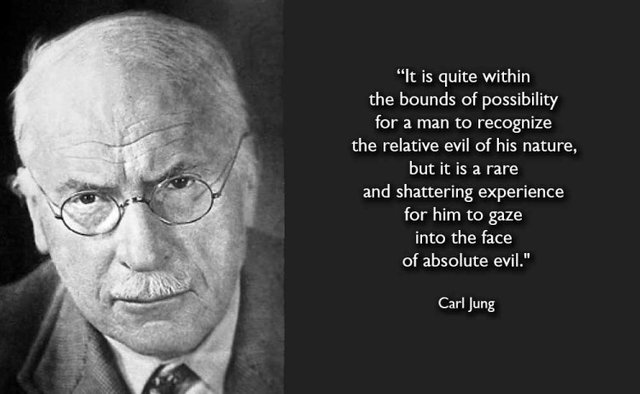The Jungian Psychoanalytic Perspective of Macbeth

- Jungian psyche model
- “Jung believed that the psyche is a self-regulating system, rather like the body, one that seeks to maintain a balance between opposing qualities while constantly striving for growth, a process Jung called “individuation”.” (http://journalpsyche.org/jungian-model-psyche/)
- Contents and nature of the unconscious: “Everything of which I know, but of which I am not at the moment thinking; everything of which I was once conscious but have now forgotten; everything perceived by my senses, but not noted by my conscious mind; everything which, involuntarily and without paying attention to it, I feel, think, remember, want, and do; all the future things that are taking shape in me and will sometime come to consciousness: all this is the content of the unconscious.” (“On the Nature of the Psyche,” The Structure and Dynamics of the Psyche, Collected works 8, par. 382)
- “the term archetype is not meant to denote an inherited idea, but rather an inherited mode of functioning, corresponding to the inborn way in which the chick emerges from the egg, the bird builds its nest, a certain kind of wasp stings the motor ganglion of the caterpillar, and eels find their way to the Bermudas. In other words, it is a “pattern of behaviour”. This aspect of the archetype, the purely biological one, is the proper concern of scientific psychology’.” (Collected Works 18, para 1228).
- “Jung felt that people are born with a “blueprint” already in them that will determine the course of their lives, something which, while controversial at the time, is fairly widely supported to today owing to the amount of evidence there is in the animal kingdom for various species being born with a repertoire of behaviours uniquely adapted to their environments. It has been observed that these behaviours in animals are activated by environmental stimuli in the same manner that Jung felt human behaviours are brought to the fore.” (http://journalpsyche.org/jungian-model-psyche/)

- Shadow: a lack of integration of the Shadow means it will consume the Self during the individuation process--Possession and ultimate destruction by the Shadow (and interactions with other parts of the psyche)
- “The shadow, said celebrated Swiss psychiatrist C.G. Jung...is the unknown ‘‘dark side’’ of our personality–-dark both because it tends to consist predominantly of the primitive, negative, socially or religiously depreciated human emotions and impulses like sexual lust, power strivings, selfishness, greed, envy, anger or rage, and due to its unenlightened nature, completely obscured from consciousness.” (https://www.psychologytoday.com/us/blog/evil-deeds/201204/essential-secrets-psychotherapy-what-is-the-shadow)
- “On the Shadow--Without a well-developed shadow side, a person can easily become shallow and extremely preoccupied with the opinions of others, a walking Persona. Just as conflict is necessary to advancing the plot of any good novel, light and dark are necessary to our personal growth.” (http://journalpsyche.org/jungian-model-psyche/)
- “The shadow is a moral problem that challenges the whole ego-personality, for no one can become conscious of the shadow without considerable moral effort. To become conscious of it involves recognizing the dark aspects of the personality as present and real. This act is the essential condition for any kind of self-knowledge.” (Aion (1951). CW 9, Part II: P.14)
- "Filling the conscious mind with ideal conceptions is a characteristic of Western theosophy, but not the confrontation with the shadow and the world of darkness. One does not become enlightened by imagining figures of light, but by making the darkness conscious." (“The Philosophical Tree” (1945). In CW 13: Alchemical Studies. P. 335)

- MacBeth—the psychological cause-and-effect story of disintegration (all aspects of the same self; lack of integration leads to annihilation of the self; self-sabotage)
- Trio of witches (norns/fates)—because of a lack of individuation, a dark destiny plays out for MacBeth consuming the self in a form of “possession”
- MacBeth’s wife desires for him to kill the king/MacBeth’s debate to kill Duncan overpowered by the desire of his wife
- lack of integration of the Shadow leading to the lack of enslavement by external forces including ambition/social status
- enslavement to the will of others/walking persona
- Duncans’ blood, bloody knife, and supernatural signs of impending doom as a result of acknowledgement of his unconsciously-driven, shadow-possessed deeds that manifest as fate
- Continuation of evil perpetuation as a result of ever-constant lack of integration
- to accept his natural sinful/evil ambitious desire would be enough to begin the shadow integration/active individuation process; instead, MacBeth ponders the inability to be redeemed (gone too far)
- possession of the Shadow leads to his inevitable end
- prophecies of the witches/demon spirits and manifest in his life
Coursen, H. R. "Jung's Advice to the Players: A Jungian Reading of Shakespeare's Problem Plays." Shakespeare Quarterly, vol. 47, no. 3, 1996, pp. 353. ProQuest, http://libraryaccess.sdmiramar.edu:8080/login?url=https://search-proquest-com.libraryaccess.sdmiramar.edu/docview/195951122?accountid=38871.
English, Fanita. "Unconscious Drives Reimagined." Transactional Analysis Journal, vol. 38, no. 3, 2008, pp. 238-246. ProQuest, http://libraryaccess.sdmiramar.edu:8080/login?url=https://search-proquest-com.libraryaccess.sdmiramar.edu/docview/207369910?accountid=38871.
Jung, Carl Gustav. Structure & Dynamics of the Psyche. Vol. 8, Princeton University Press, 1970.
Jung, Carl Gustav. Aion: Researches into the Phenomenology of the Self. Vol. 9, Princeton University Press, 1969.
Jung, Carl Gustav. Alchemical Studies. Vol. 13, Princeton University Press, 1968.
Jung, Carl Gustav. The Symbolic Life: Miscellaneous Writings. Vol. 18, Princeton University Press, 1977.
Rowland, Susan. "Shakespeare and the Jungian Symbol: A Case of War and Marriage." Jung Journal, vol. 5, no. 1, 2011, pp. 31-46. ProQuest, http://libraryaccess.sdmiramar.edu:8080/login?url=https://search-proquest-com.libraryaccess.sdmiramar.edu/docview/863372606?accountid=38871, doi:http://dx.doi.org.libraryaccess.sdmiramar.edu:8080/10.1525/jung.2011.5.1.3
The Jungian Model of the Psyche, Journal Psyche, 2018, journalpsyche.org/jungian-model-psyche/.
What is the Shadow?, Psychology Today, Apr. 2012, www.psychologytoday.com/us/blog/evil-deeds/201204/essential-secrets-psychotherapy-what-is-the-shadow.

Comments
Post a Comment